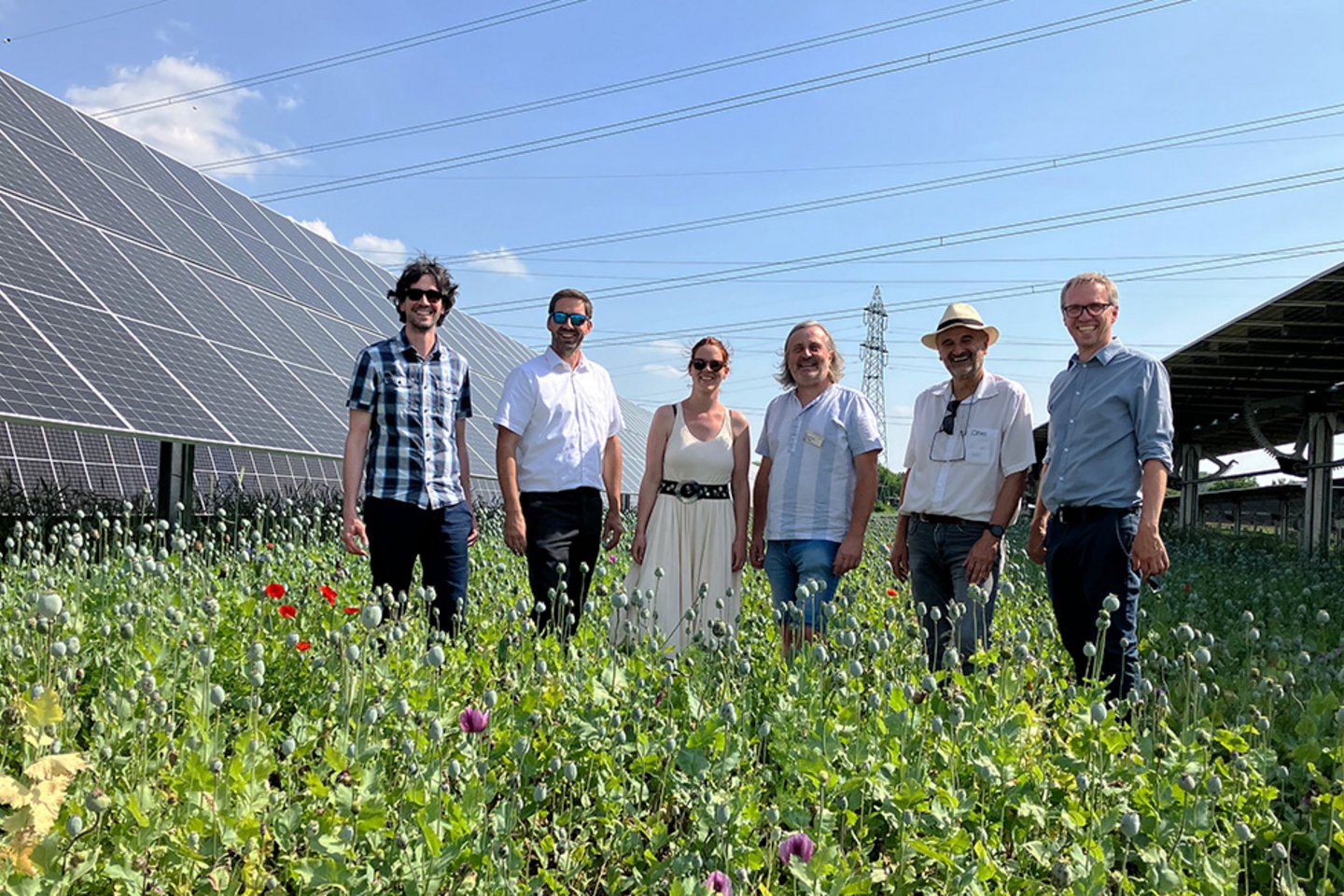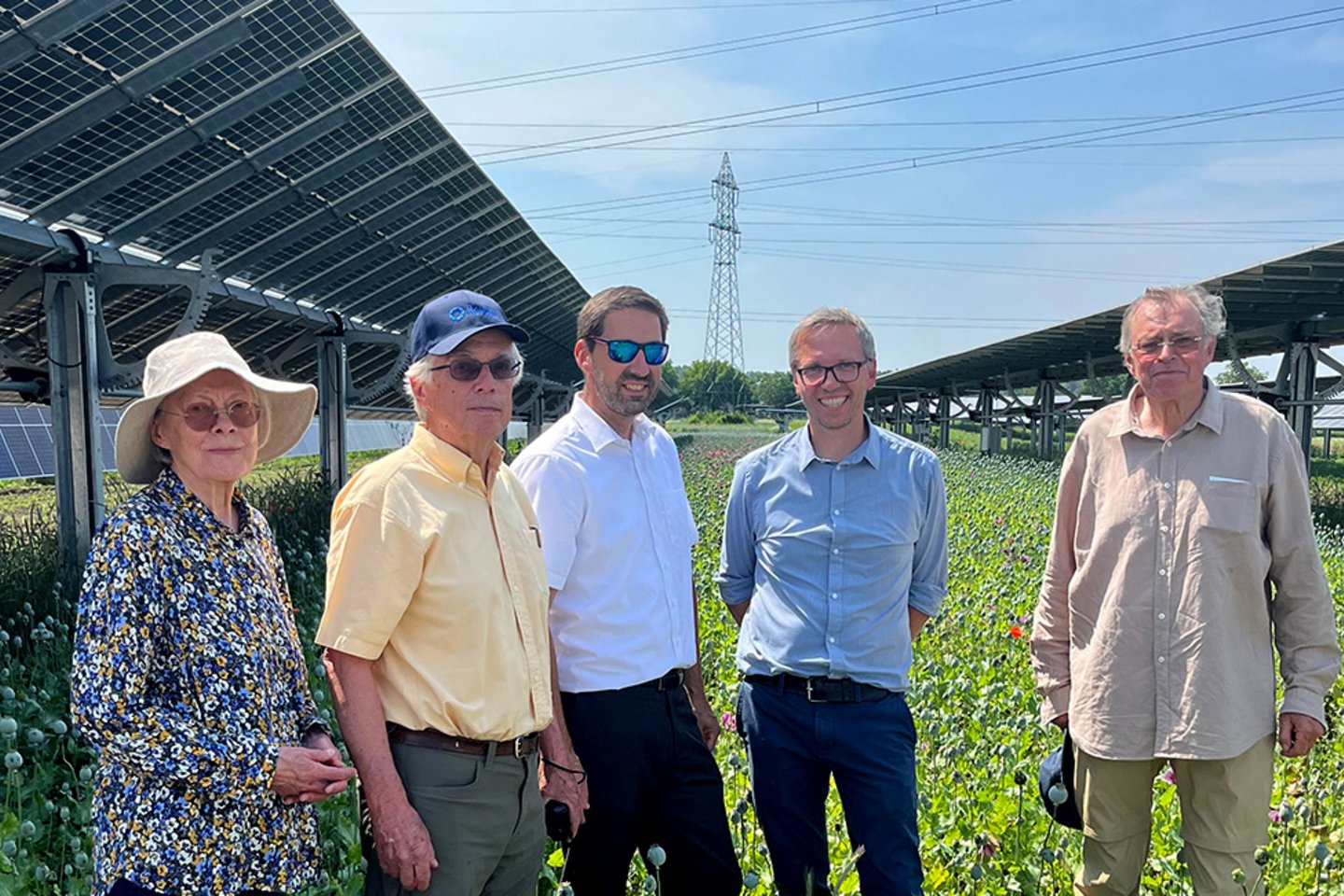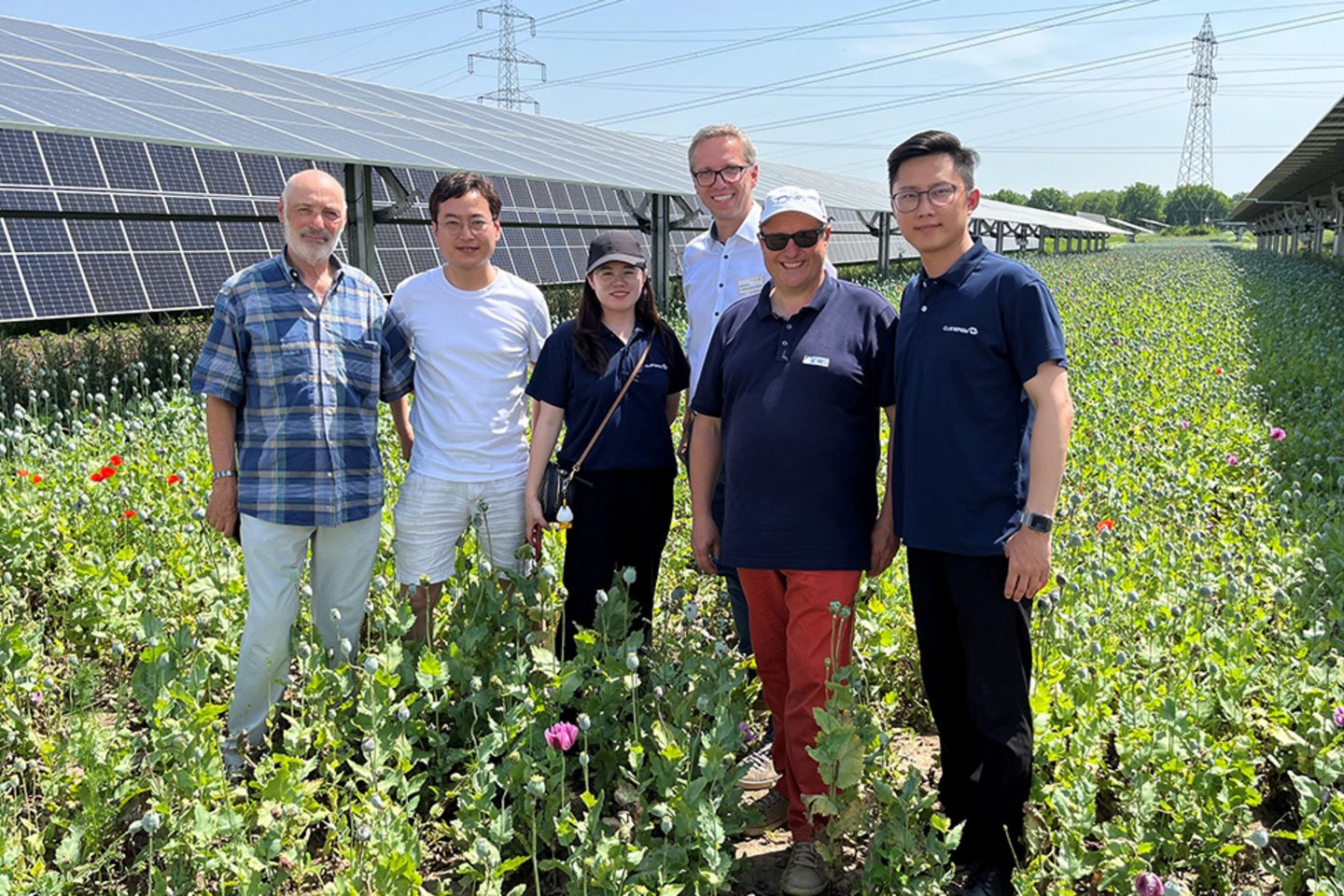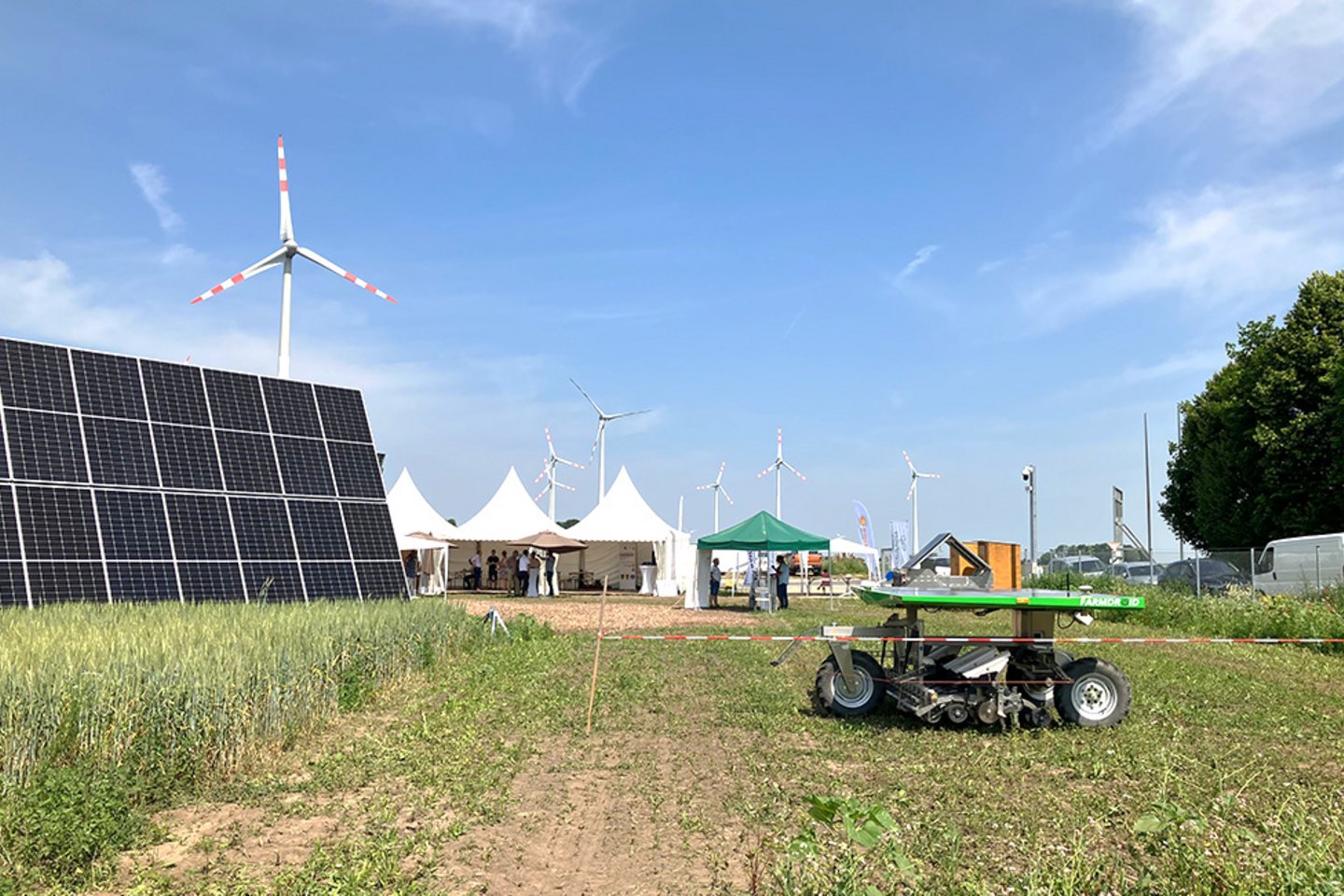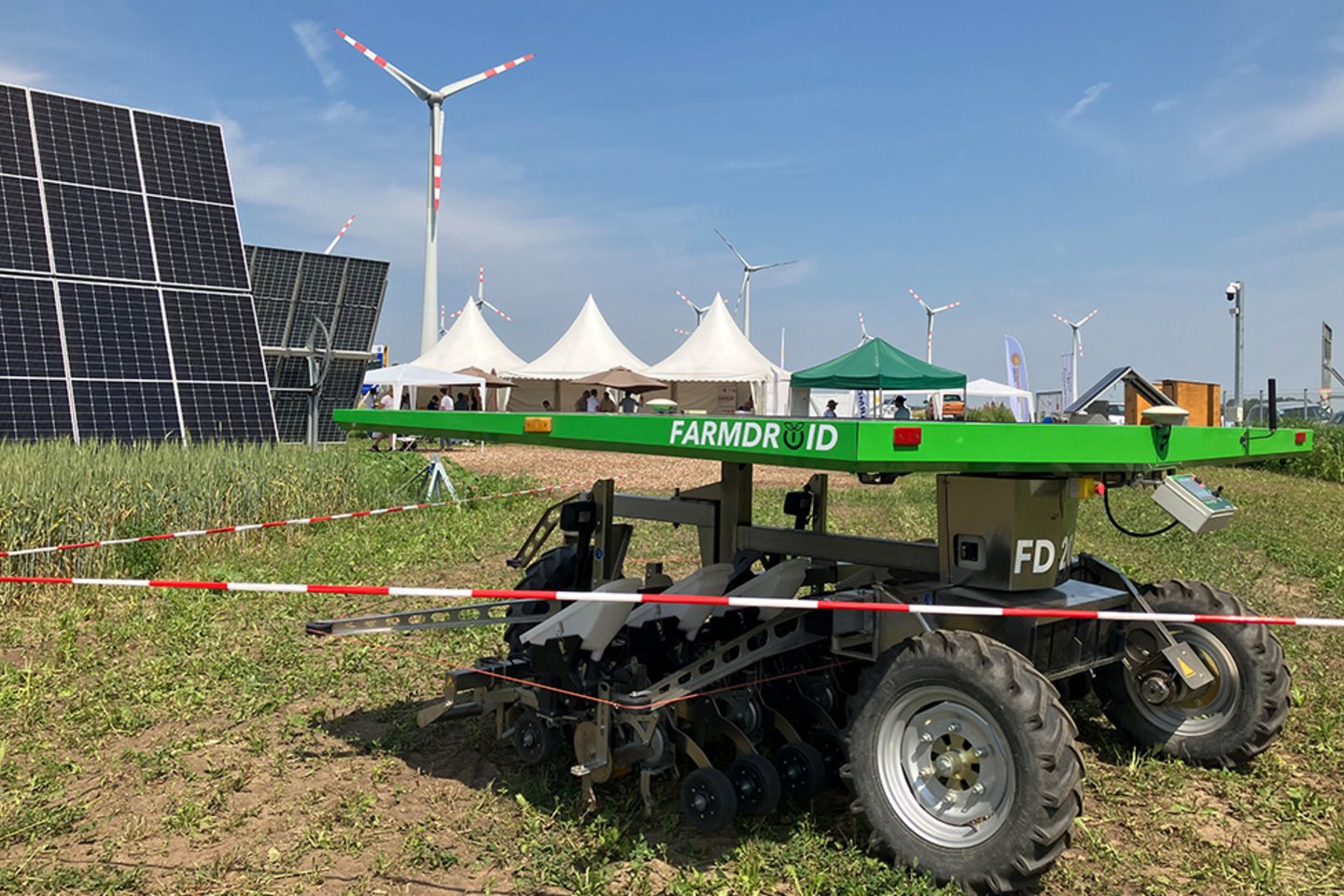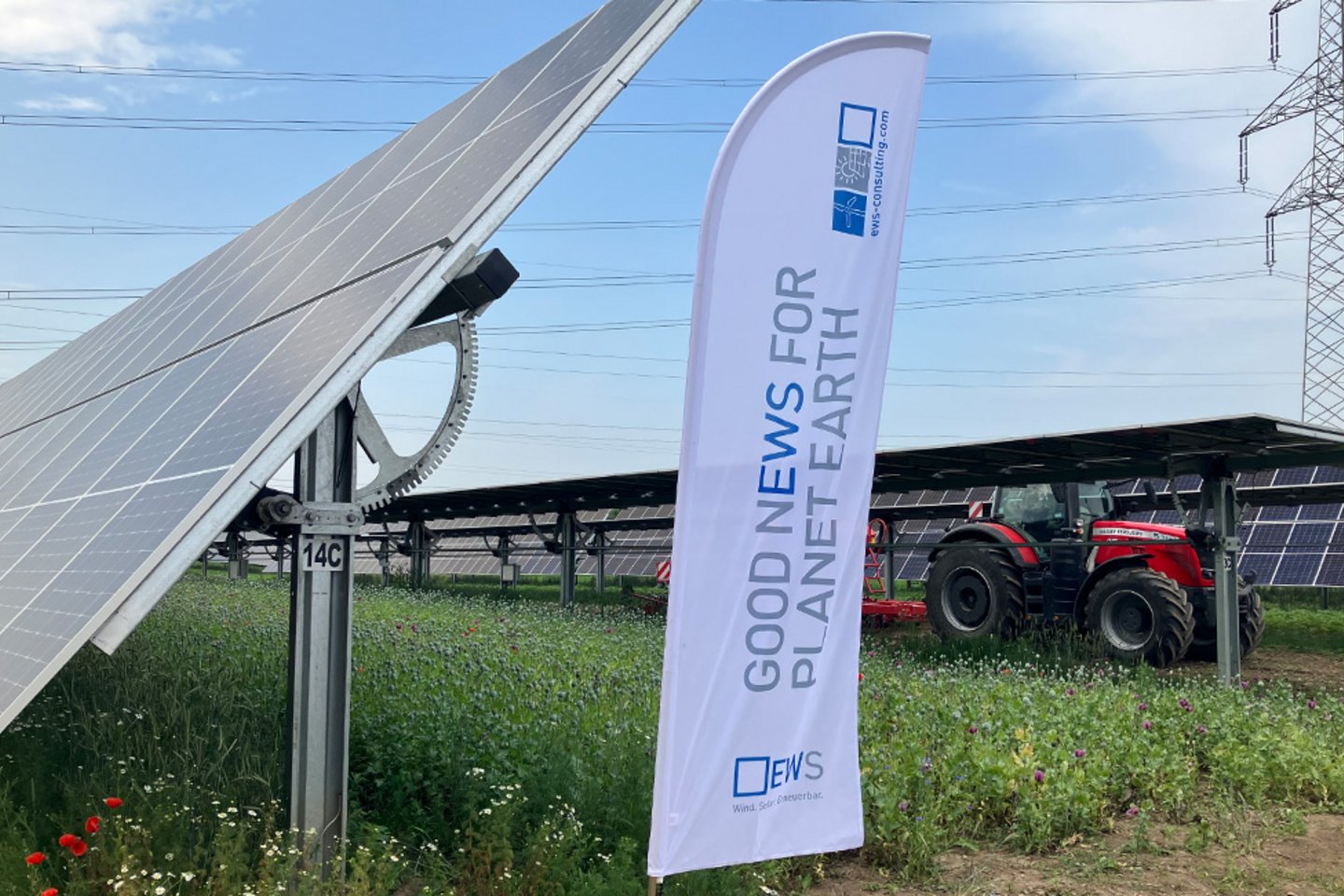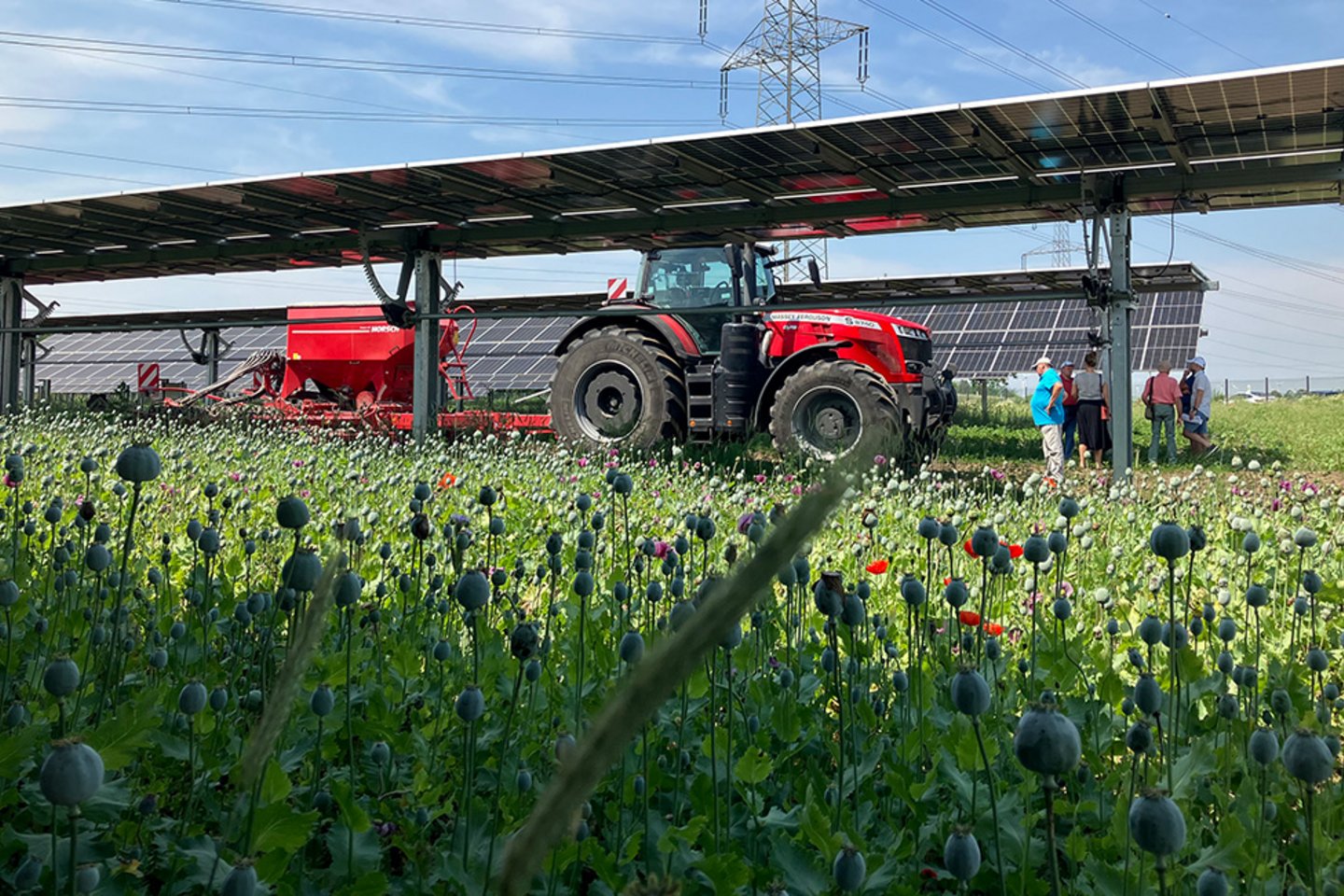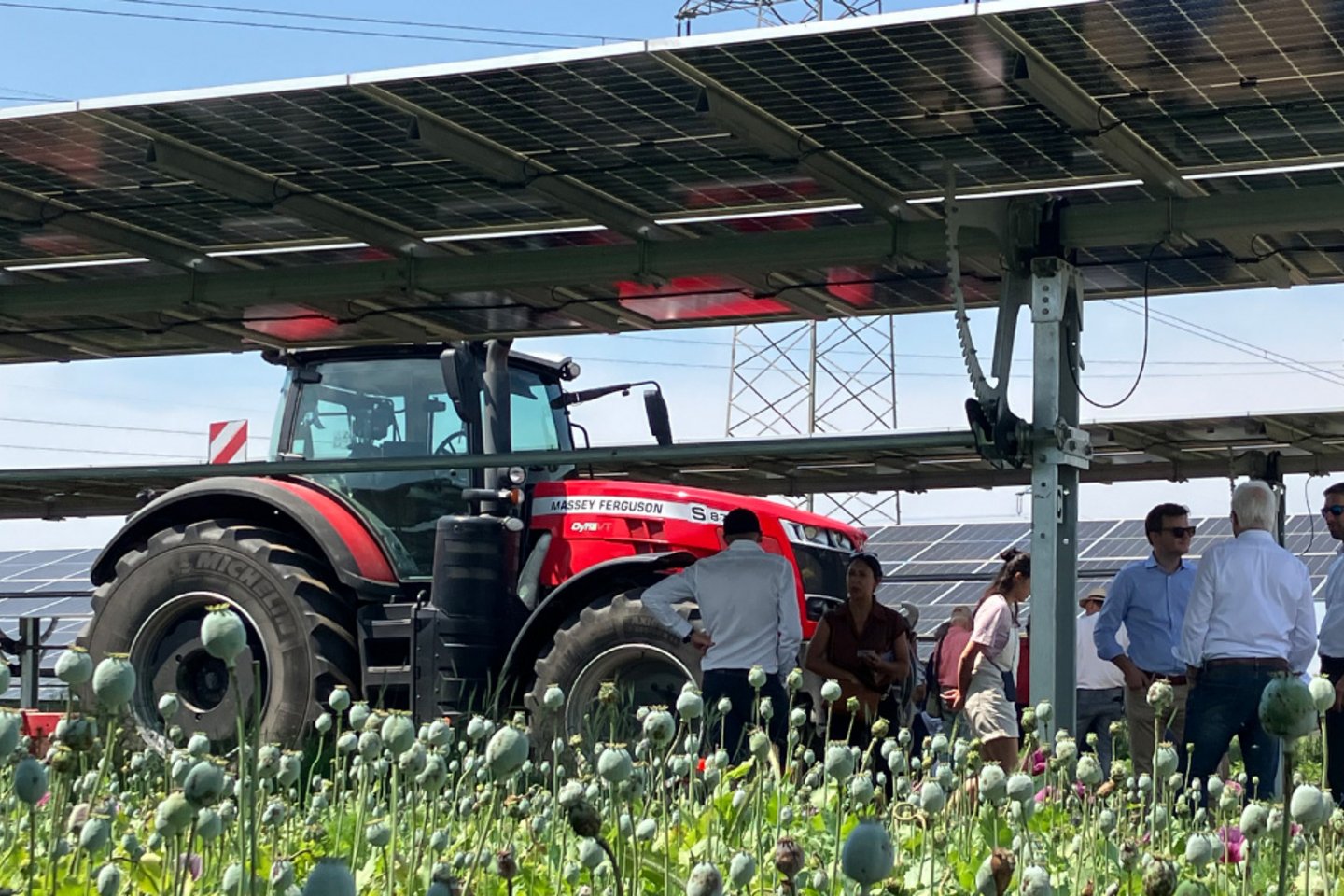Successful trade days at EWS Sonnenfeld in Bruck/Leitha
On the day of the Solstice, the expert days on 20 and 21 June 2023 provided an outlook on the energy transition. The fact that agri-photovoltaics is of great interest was confirmed by the influx at EWS Sonnenfeld Bruck/Leitha. The diverse programme attracted an international audience of experts who came to see for themselves the advantages and potential of Agri-PV on site. In addition to guests from Hungary, China and Papua New Guinea, a group of farmers from Finland showed great interest in the EWS Sonnenfeld and are thinking about implementing a solar field project in their home country.
Maximum yield with minimum land consumption
The credo of agri-photovoltaics is the multiple use of good grassland and arable land for CO2-free solar power generation while continuing to focus on agricultural cultivation. The EWS Sonnenfeld as a pilot and research plant impressively demonstrates how agriculture between solar panels works and, due to special features such as the tracked bifacial solar catchers and the flexible occupancy design, 80 % of the area continues to be used for fodder and food production. Only 2 % of the area is used for PV components, and another 18 % is used as bee pastures and flowering strips to increase biodiversity.
Outlook for the agriculture of the future
The Farmdroid, the world's first autonomous and self-sufficient sowing and chopping robot - powered purely by solar electricity from the photovoltaic modules on the device - demonstrated during the symposium that the future is also arriving in agricultural machinery technology and that CO2-free farming can be possible. Scientific insights into the research at the EWS Sonnenfeld were offered by the team around Dr. Alexander Bauer from BOKU Vienna, who wants to provide answers on how the simultaneous generation of solar power and agricultural use can be optimised. The lighthouse project Sonnenfeld Bruck/Leitha is funded by the Climate and Energy Fund and has already received several awards, including the Climate Star 2023 and the PV League of Lower Austria.
Joachim Payr, product developer at EWS Consulting, is enthusiastic about the positive response after the expert days: "Our USP at the Sonnenfeld is the movable sun catchers. After only a few months of operation, we know that they deliver up to 20% more yield than fixed installations. The feedback from our visitors, including farmers, energy producers and local councillors, shows that with the EWS Sonnenfeld we offer an innovative and soil-friendly form of solar power production that is also interesting as a municipal project. We were therefore particularly pleased to receive a visit from municipal representatives and interested farmers from Höhnhart in Upper Austria. An EWS Sonnenfeld project is currently being developed there."
With the newly founded EWS EPC GmbH, we also handle large-scale turnkey PV projects including grid connection as general contractor. Learn more about this at www.ews-epc.at.
Potatoes, maize, cereals, soya, sunflowers, poppies and grain millet are currently growing at the Sonnenfeld in Bruck/Leitha. At EWS Sonnenfeld in Bruck/Leitha, solar electricity is produced for more than 1,000 households on an area of around 5 hectares. 5,704 bifacial PV modules with a rated power of 545 Wp and a total rated power of 3 MWp supply 3,600 MWh/year.
Read our press release (in German) on the trade days here.
